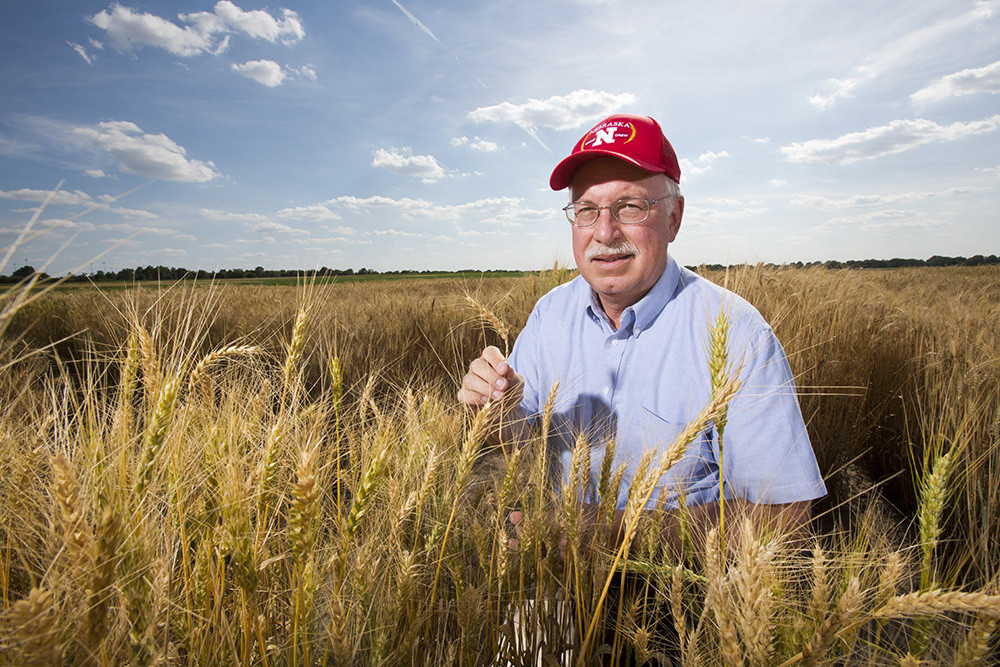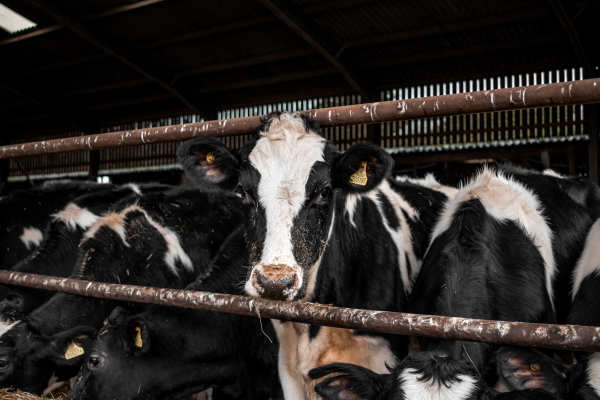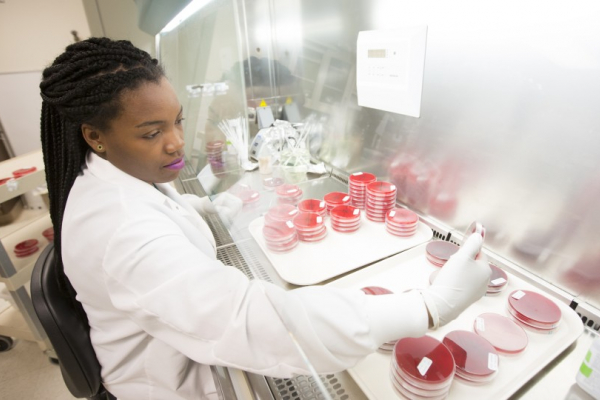Diversifying Dinner: Creating hybrid wheat for improved productivity and nutrition

PROBLEM
- Wheat is a staple crop that needs to be more productive in the future.
SOLUTION
- By developing hybrids in self-pollinated crops, scientists can take advantage of “hybrid vigor” to increase the productivity and nutritional content of wheat.
By developing hybrids in self-pollinated crops, scientists can take advantage of “hybrid vigor” to increase the productivity and nutritional content of wheat.Wheat provides 20 percent of the protein and 20 percent of the calories consumed by humans worldwide. When scientists make positive changes in a crop like wheat, it can lift the poorest farmer out of poverty and help feed the 800 million people who go to sleep hungry every night.
Dr. Baenziger and his team are working to recreate the revolution of hybrid corn in wheat. Wheat is a self-pollinated crop, which means it doesn't get genetic boost by crossing inbred parent lines. The team wants to change wheat from a self-pollinated crop to a cross-pollinated crop to take advantage of “hybrid vigor”, a phenomenon that explains why hybrid offspring often have improved grain yield, hardiness, or function compared to its parents.
By developing cross-pollinating hybrids, scientists hope to leverage the natural advantage of hybrid vigor to breed wheat that could have huge advantages such as increased yield, nutrients, and drought tolerance.
Before hybrids are created, researchers must screen existing wheat varieties to identify which strains should be used as parents. Each selected parent strain must be genotyped to map the genes responsible for desired characteristics in the resulting hybrid.
Dr. Baenziger and his team hope their research will breed new wheat hybrids with increased productivity so that farmers can meet the needs of the world’s growing population. This research will lead to improved hybrid wheat seed that is affordable for farmers, efficient to grow, and more nutritious for consumers.
I was a totally urban kid. I read The Population Bomb when I was 17 and thought we must do better than allow millions of people to starve. I became determined to help feed people. Agricultural research allows humanity to thrive.”
– Stephen Baenziger
RESEARCHERS
- P. Stephen Baenziger, PhD, University of Nebraska
- Vikas Belamkar, PhD, University of Nebraska
- Amanda Easterly, University of Nebraska
- Nicholas Garst, University of Nebraska
- Hannah Stoll, University of Nebraska
FUNDING
- USDA NIFA AFRI
- University of Nebraska endowments
- Nebraska Wheat Boards/Commissions


